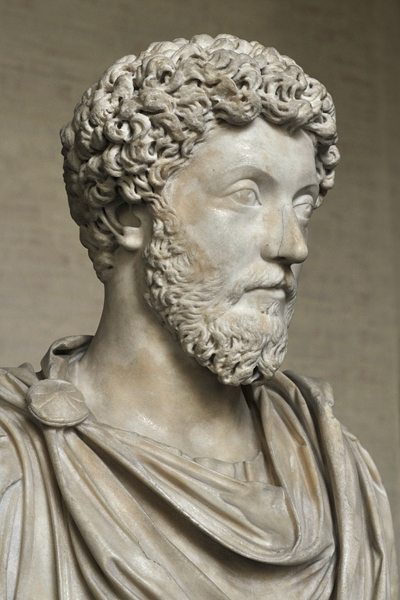

"Well, then, shall mere glory distract you? Look at the swiftness of the oblivion of all men; the gulf of endless time, behind and before; the hollowness of applause, the fickleness and folly of those who seem to speak well of you, and the narrow room in which it is confined. This should make you pause. For the entire earth is a point in space, and how small a corner thereof is this your dwelling place, and how few and how paltry those who will sing your praises here!....The Universe is change, life is opinion."
Marcus Aurelius, Meditations
"Some say, and it seems plausible, that Commodus Antoninus, his son and successor, was not begotten by him, but in adultery....This story is considered plausible, as a matter of fact, for the reason that the son of so virtuous a prince had habits worse than any trainer of gladiators, any play-actor, any fighter in the arena, anything brought into existence from the offscourings of all dishonour and crime" (Historia Augusta: The Life of Marcus Aurelius, XIX.1, 6).
In this handsome portrait bust of Marcus Aurelius (left) in the Archaeological Museum (Istanbul), the heavily lidded eyes, a physical characteristic of the Antonines, can be seen as well in his son Commodus (Capitoline Museums, Rome).
The bust of Aurelius (top), which is in the Glyptothek (Munich), is almost perfectly preserved; only the nose has been restored. But, compared with the portraits of Aurelius and Commodus, one wonders if its shape is correct.
The name of the Glyptothek derives from the Greek: glyptein (to carve, chisel) and theke (depository), and was coined by analogy from the Greek Pinakothek (picture depository).
Reference: Glyptothek, Munich: Masterpieces of Greek and Roman Sculpture (2007) by Raimund Wünsche.